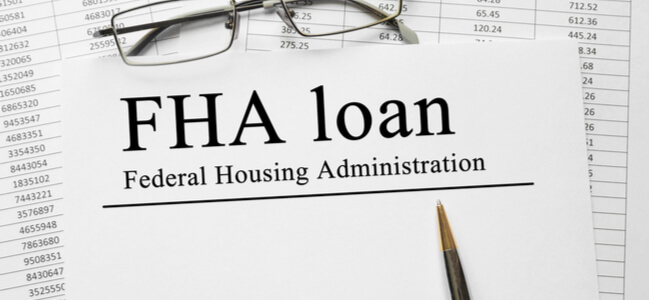How To Make Sure Your Loan Payments Are On Time

When you regularly pay your installments on time, you benefit in several ways.
Foremost amongst the benefits is lenders reporting your on-time repayment behavior to the top credit bureaus. Accordingly, when lenders evaluate your creditworthiness in the future, a hard check of your credit history will highlight your responsible repayment habits.
Good financial behavior translates to good credit scores. This means access to better installment loan options with more attractive terms and interest rates.
Paying installments on time also means saving hard-earned money instead of accumulating more interest on loans. Every saved dollar matters for your financial stability. Ultimately, this boils down to avoiding delayed loan payments that can cause severe financial repercussions.
Why You Should Avoid Late Payments
If you delay your installment payments, you may end up losing on several fronts.
- Late repayment may decrease your credit score substantially, making it more difficult to secure fresh loans from banks and other lenders.
- Late payments can attract penalties that can add to principals and interest over the life of the loan.
- Your interest rate might go up in subsequent months. If you miss credit card payments, promotional interest rate benefits might even be canceled.
Due to the negative impacts of late payments, handling your car, home, or personal loan installments on time is vital for defending your credit score. Keep reading to simplify the process of on-time repayment.
Tips For Avoiding Late Payments
Although it may be cumbersome to track all the payment dates and details, this is the first step to avoiding late payments. With some careful planning, you can instill a better sense of repayment discipline.
If you want to stick to timely loan payments, try implementing the following tips
Automatic Payments
To pay off your credit card bills or loans, automate your loan payments by opting for autopay or direct debiting options. For this, you would be required to give permission to your company to deduct your loan payments automatically. Some lenders may even provide a discount for signing up for autopay.
Of course, always make sure that you have a sufficient balance in your bank account when automating your payments. On-time repayment is an important criterion to satisfy when attempting to build your credit score.
Your installment payments can be fixed or vary periodically. In case of a variable payment, your company should inform you at least a week before the payment date. If you do not set up an automatic mechanism, it may be difficult to remember your due dates. Furthermore, any late payment might negatively affect your credit score.
Stay Organized
Keep a track of all your income. If you are an employee, this means tracking your monthly salary. Freelancers and entrepreneurs should diligently note their projects and the payments due using an excel sheet.
You should not ignore supplementary income sources either. For example, any rental income or part-time work should be counted. Similarly, keep a record of all your expenses like rent, utility bills, food, entertainment, and installment payments. Assign dates to each of these expenses.
Next, prioritize these expenses per their urgency. All payments do not have the same importance – for example, some may be small manageable amounts while others may be large amounts that require your immediate attention.
Finally, keep a track of all the past loan payments that you have made. You should always be aware of your outstanding principal balance.
Strategic Due Date Planning
If you have a debt on your credit card, you need to clear it before the due date. Failure to do so might result in penalties, accrue more interest, and negatively impact your credit history.
When you receive your credit card statement, note the payment due date. Your statement should reach you at least a couple of weeks before the scheduled date for the payment.
If possible, do not wait for the due date and pay off your balances as quickly as possible. The longer you wait, the higher your chances of a forgotten payment.
Before making payments, ensure that you are paying in the right payment cycle on or before the due date.
In certain situations, card issuers may extend the due date and time to make things easier for borrowers that are encountering difficulties. If you have missed your date, call your issue company and get a fresh date.
You can always write down all your due dates on paper and never default on payments, or even better, you could set a reminder.
Reminders & Alerts
Wondering how to pay off your mortgage on time? If you’re unable to sign up for automatic payments, set reminders that will ensure you are punctual for making payments.
There are two ways of manually setting up schedules for loan payments.
- Set up your payment date on a Google calendar or you could alternatively sync your desktop calendar alerts with your mobile device. This way, you will never forget your installment date. Wherever you are, you will get your loan installment alert.
- If you are a regular email user, you could get loan installment alerts from your lender. Once you get a mail alert, log on to your computer and pay immediately. You may have to subscribe to these notifications.
Look Out For National Holidays & Errors
Sometimes national holidays and other events can affect your repayment schedule. Banks are closed on holidays, and so any checks presented on those days are cleared the next day.
If your due date is a holiday, present your check a few days in advance. For example, if your due date is July 4th, the date on your check should be July 3rd or earlier to avoid any problems.
Additionally, it is always good practice to make online payments to prevent any unforeseen circumstances. Of course, be wary of your network connection to avoid any accidental debits or failed transactions.
Conclusion
To defend your credit score and avoid any unnecessary penalties or fees, on-time payments are critical.
Take steps like signing up for autopay, budgeting carefully, setting reminders, and tracking incoming and outgoing funds to build up payment discipline and ensure late payments are a problem of the past.
By avoiding late payments at all costs, you can maintain a solid credit history, improve your score, and maintain access to attractive financing terms and conditions.



